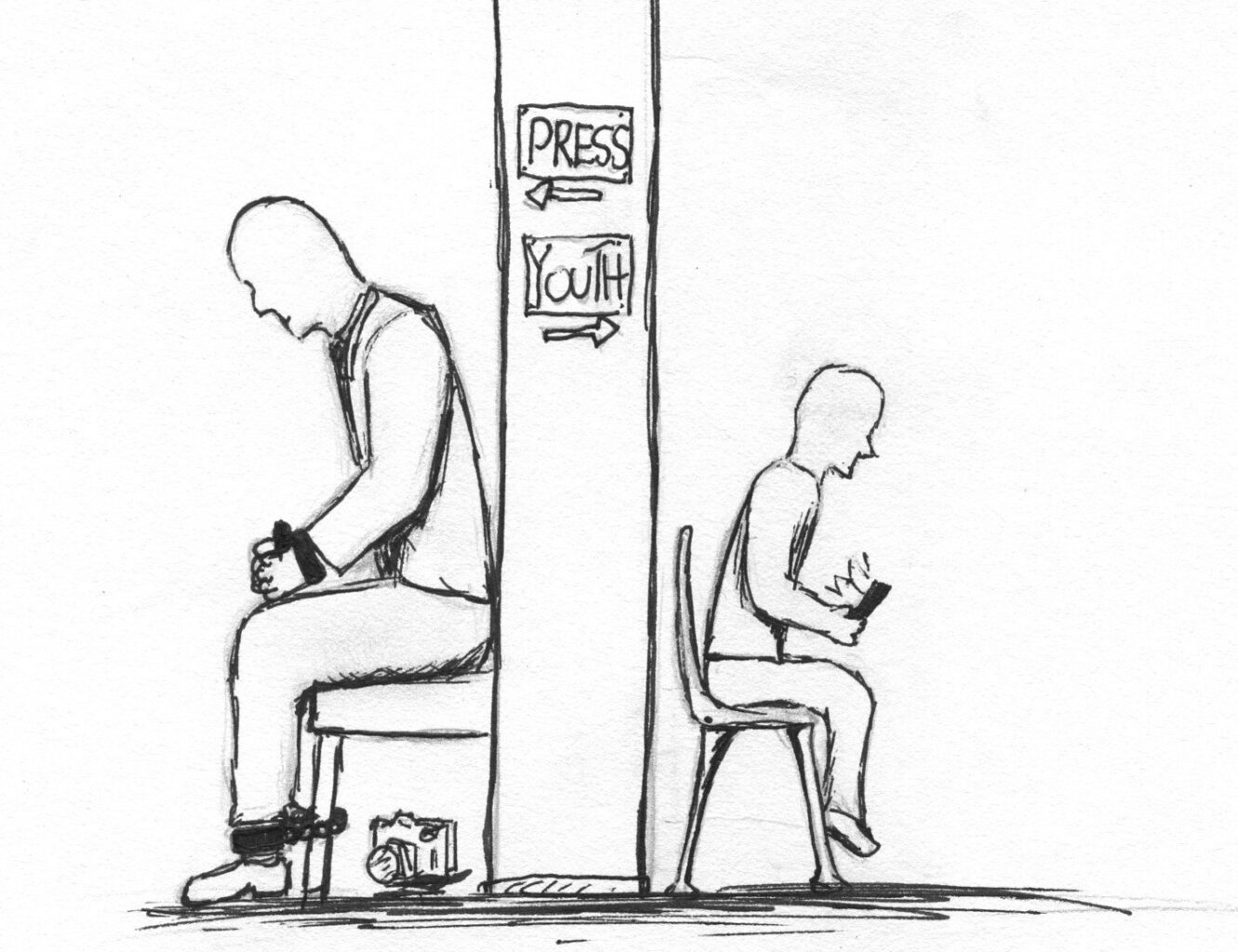Today’s society faces many problems that require the attention of not only the press but of the everyday citizen, including today’s youth.
By KEVIN MOBLEY – Editor-in-Chief
Brutality, torture, hatred and massacre are far too common right now for journalists and humans alike. That’s got to change.
The moment I knew I wanted to become a journalist, my father shared a sentiment with me that still echoes in my head to this day.
“You’re going to have to have a thick skin to be a writer,” he said. “Don’t let anyone phase you.”
And it rings true. As a writer, the ability to ward off all the negativity that comes your way–harsh criticism, strong opposition, hateful comments and even sometimes threats–is vital.
But never should bullets have been a part of that equation.
Two bright, young journalists, Alison Parker and Adam Ward, were murdered by a former coworker in a senseless act of rage on the morning of Wednesday, Aug. 26, reminding all of us, especially aspiring young reporters, of the dangers that lie in the path of a journalist in the pursuit of stories that need to be told.
The constant angst and fear that afflicts professional journalists, and even to an extent young student journalists like myself, is a result of events such as these. Disappearances, torture, kidnappings and even execution are realities that many journalists are faced with in tracking down a story.
The Committee to Project Journalists (CPJ) estimates that 1142 journalists have been killed since 1992. In the last year alone, reporters have been decapitated by ISIS, detained for simply tweeting about the violence that unfolded in Ferguson and gunned down in their own building at Charlie Hebdo.
The truth of the matter is this: we, as moral human beings, have to eradicate the senseless violence that led to deaths of Alison Parker and Adam Ward, and the nine in Charleston, and the 27 at Sandy Hook, and the 1142 journalists across the world.
When will we finally decide that enough is enough?
Nothing else should matter when innocent people are being murdered in masses with each passing day.
Solving these deeply-rooted issues requires real discussion of race, gender, class, wealth, religion, sexual orientation and all the other social constructs we have deployed to divide ourselves from one another for centuries.
No longer can we afford to avoid these topics, especially right here in our schools, because in doing so, we only perpetuate the distancing and implicit hatred that lead to oppression and genocide.
If we choose to live our lives in ignorance towards what is happening right before our very eyes, then we are just as much a part of the problem as the instigators.
We all may not be able to comprehend or connect with another’s worldview, and that’s O.K. However, respect for one another in our shared human condition is essential, and, frankly, has become lost within all of the estrangements that serve to tear us apart. Freedom of speech is one of the only ways left to counteract that.
Journalism–no matter if it’s a Pulitzer prize winning story on the front page of the New York Times, or simply a tweet as a bystander to an event–works at the heart of unearthing the very institutions that inhibit many humans, too many humans, from their natural rights.
Journalistic pursuits are based entirely on fairness, accuracy and fearlessness, and the efforts to silence the voices that so desperately need to be heard today through violence debilitate our collective understanding of the events unfolding in the world. Truth seekers like Alison Parker and Adam Ward are lost as well.
And so to honor the lives taken yesterday, and sadly will likely be taken today and tomorrow, we must all commit ourselves to journalism in some form.
Explore what affects people of your community, your state, your country, your color, your religion and your world. Consider the impact your words and actions have on others. Uncover the problems that we face, so we can all work to solve them.
Dedicating our efforts day in and day out towards any problem may not reverse the ways we have gone astray, but every one of our lives, minds and voices can cause change, real change.
It could be planting a tree or battling housing discrimination, or just even saying hello to people; it all has an impact. Nevertheless, it is crucial that we wake up from our respective daydreams, see the world for what it has become and figure out what we can do to make things right.
This is what true journalists everywhere yearn for: the society that we can achieve, and the hope that by exposing darkness, we can eventually reach the light of truth. But if we continue to accept our current reality, we so too continue to shadow the malice that is plunging mankind into madness.
